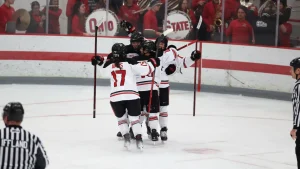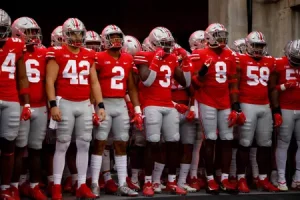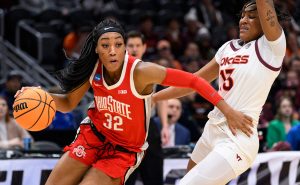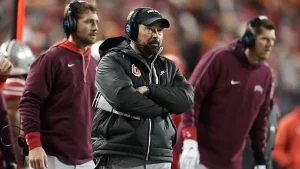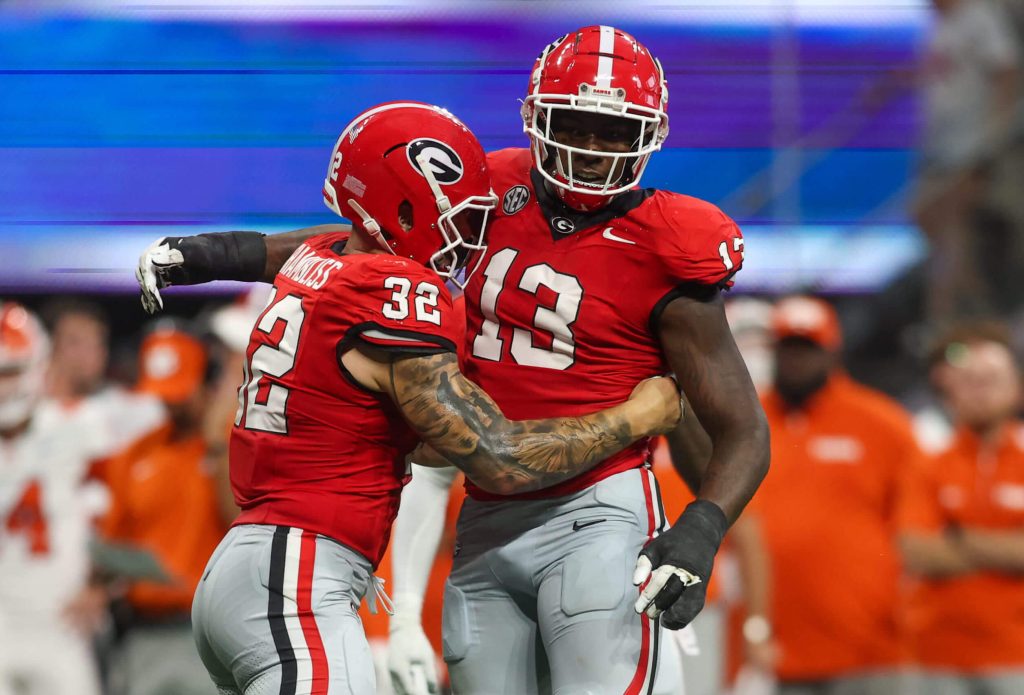
Kirby Smart, the football coach at Georgia, either saved his team in the portal or has an unsustainable model that is about to fail.
Kirby Smart’s tenure as head coach of the Georgia Bulldogs has been nothing short of transformative, with two national championships in the past two years and a consistently high level of recruiting. But as with all success stories, there are questions about the sustainability of Georgia’s model, especially as it pertains to the transfer portal.
The modern college football landscape is heavily influenced by the transfer portal, and Smart’s ability to navigate it has raised both questions and admiration. On one hand, Georgia’s success in the portal has helped address immediate needs, providing vital depth and talent to a team that is already brimming with five-star recruits. On the other hand, there are concerns about the long-term sustainability of relying on portal players and how that fits into Smart’s broader recruiting philosophy.
Georgia’s Success Under Kirby Smart
Since Smart took over in 2016, Georgia football has seen a significant uptick in performance. The Bulldogs have consistently been in the College Football Playoff conversation, and their dominance in recruiting has played a major role in this. Smart, a former assistant to Nick Saban at Alabama, brought with him a blueprint that emphasizes elite talent, physicality, and depth. His recruiting success has been unprecedented, with Georgia regularly landing top-tier prospects.
The Bulldogs have been in the national championship conversation since 2017, but it was in 2021 and 2022 that they reached their peak. Georgia won the 2021 national championship, defeating Alabama, and then repeated the feat in 2022 with an even more dominant season. The level of talent on the roster, particularly on defense, was a testament to the program Smart had built.
However, Smart’s success didn’t come from simply relying on traditional recruiting. While Georgia has been one of the best at landing five-star recruits, Smart has also been very active in the transfer portal. The portal has allowed him to bring in players who can contribute immediately, often filling critical positions of need that weren’t fully addressed in recruiting cycles.
The Role of the Transfer Portal in Georgia’s Success
The transfer portal, which allows players to transfer between programs without losing eligibility under certain circumstances, has revolutionized college football. While the portal has been around in some form for years, the introduction of more relaxed transfer rules has made it an even more important tool for programs looking to fill holes in their rosters quickly.
For Georgia, the transfer portal has been a mixed blessing. On the one hand, it has allowed Smart to plug gaps in the roster that may have otherwise been problematic. The 2021 and 2022 seasons saw Georgia bring in several key transfers who contributed to their title runs. For example, in 2021, quarterback JT Daniels transferred from USC to Georgia, while wide receiver Jermaine Burton came from Alabama. These players were brought in to bolster Georgia’s depth and provide immediate help in positions that were thin or underperforming.
However, the portal is a double-edged sword. While it can provide quick fixes, there are potential risks involved. Programs that rely too heavily on the portal may be sacrificing long-term stability for short-term success. By bringing in a large number of transfers, Georgia risks undermining its recruiting classes, which is the foundation of Smart’s approach. Recruited players may feel less valued if transfers are constantly brought in to challenge for spots. Moreover, the constant churn of new players, combined with a lack of familiarity or cohesion, can lead to instability in the locker room and on the field.
Smart’s decision to use the portal is often framed as a way to supplement and complement his overall recruiting strategy. Georgia remains an elite recruiter, but the portal gives Smart an opportunity to shore up areas where his traditional recruiting classes might not have yielded immediate results. This hybrid approach, combining the best of both worlds, is what Smart believes will keep Georgia at the top for years to come.
Questions About Sustainability
While Georgia’s success in the portal has certainly helped its immediate prospects, it raises questions about the sustainability of the model. Some critics argue that the portal-driven approach may be difficult to maintain long-term. College football is moving toward a situation where the top programs are not only dependent on elite high school recruiting but also need to keep a constant eye on the transfer market. But a program like Georgia, which already has such strong recruiting pipelines, risks falling into a pattern where the long-term development of homegrown talent takes a back seat to instant fixes via the portal.
One potential issue is the increasing financial cost of navigating the transfer portal. With the rise of NIL (Name, Image, Likeness), the stakes in recruiting and the transfer market have skyrocketed. High-profile transfers can command significant amounts of money, and while Georgia is one of the wealthiest and most powerful programs in college football, the competition for top transfer talent is fierce. At some point, the cost of roster management, especially when factoring in NIL, could become a serious issue for programs like Georgia.
Additionally, while the portal has been kind to Smart thus far, the risk of turnover and volatility is ever-present. The more players Georgia brings in through the portal, the more they need to keep their rosters happy and healthy. It’s not just about winning games but also about managing personalities, expectations, and egos. High-profile transfers may expect immediate playing time, and there can be locker room tension when a highly-rated recruit or transfer feels they’re not being utilized properly.
Another concern is the potential lack of long-term continuity. Teams that rely heavily on transfers can struggle with creating a cohesive, established culture over time. Building a dynasty requires long-term team chemistry, and while players who transfer in can undoubtedly contribute, they may not have the same level of buy-in to the program’s culture as homegrown players. Georgia has been lucky that many of its transfers have fit in well, but it is unclear whether this trend will continue.
The Model’s Future
Looking ahead, Kirby Smart’s model of combining elite recruiting with strategic transfer portal additions seems like a balanced and sustainable approach. It offers immediate benefits in terms of talent acquisition while maintaining a strong focus on long-term development. However, whether this model can continue to work at the same level in the coming years depends on several factors.
First, Smart will need to ensure that Georgia’s recruiting prowess remains strong. The Bulldogs can’t afford to become too reliant on transfers to fill out their roster. If Smart can continue to recruit at a high level and develop talent from within, the Bulldogs can remain competitive without over-relying on portal players. At the same time, Georgia needs to be strategic in how they use the portal, recognizing that it should be used to supplement rather than replace traditional recruiting.
Second, Smart will have to manage the financial and emotional aspects of roster building. NIL deals are a wild card that could change the equation for college programs, and Georgia will have to stay ahead of the curve in terms of both its financial resources and its ability to foster a positive team culture. Keeping top players happy and ensuring that the program’s values are upheld will be crucial as Georgia continues to build its roster through both recruiting and the portal.
Finally, Kirby Smart must keep the momentum going in terms of on-field success. As Georgia continues to dominate the recruiting world and strengthen its roster with the best available talent, the expectation will be for continued success. If Smart can maintain this success, Georgia will continue to be a force in college football. However, if the model falters, it could lead to an eventual reckoning, where Smart’s success in the portal is seen as a crutch rather than a complement to a sustainable, long-term approach.
Kirby Smart has built Georgia into a powerhouse program, and the use of the transfer portal has been an integral part of that. However, questions remain about the sustainability of relying on the portal, especially if it begins to overshadow the program’s core recruiting principles. The next few years will be crucial for Smart as he balances immediate success with long-term stability. If he can keep the right mix of homegrown talent, transfers, and cultural cohesion, Georgia will remain a top-tier program for the foreseeable future. But if the portal becomes too much of a crutch, Smart may find that even the most successful models can begin to crumble under the weight of their own ambition.

